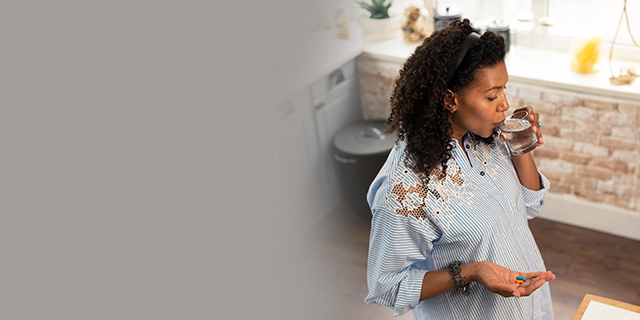During pregnancy, thyroid hormone requirements are increased by about 50% over pre-pregnancy levels. A lack of iodine during pregnancy can have a significant impact on the brain development of babies both in-utero and after being born. In addition, young children can experience developmental and learning problems if there is an iodine deficiency. If the deficiency is severe the child may get a condition called iodine-deficiency disorder (IDD).
IDD is the single most common cause of preventable mental retardation and brain damage in the world today. However, once the damage is done, it’s irreversible.
Iodine is used by the thyroid gland to make thyroid hormone – one of the important hormones that drive our metabolism. With insufficient iodine, the mother (or the baby) can’t make enough thyroid hormone to keep up with the needs of the growing brain. If hypothyroidism (insufficient thyroid production) develops early in pregnancy, there is significant risk of miscarriage, premature labour and neurological damage to the foetus.
So how can women prevent this condition?
Firstly you cannot do it by diet alone. You would need to eat large quantities of food in order to do so. The World Health Organisation recommends that you take 250 ug of iodine a day during pregnancy. Since December 1995, all table salt in South Africa has to have a mandatory 40-60 ppm iodine added to it. As a result and according to a survey done, South Africa was shown to have an optimal iodine nutritional status by 1998.
To ensure that you have an optimal iodine intake, you can:
Use iodised salt. This is not the same as sea salt. You need to check it is the correct one, as sea salt is an insufficient source of iodine.
Eat food rich in iodine. Seafood and seaweed (such as kelp and nori), is especially high in iodine.
The most useful thing you can do is take an iodine supplement, as part of a multivitamin supplement. Most contain between 50–150 ug of iodine – you need 250 ug of iodine a day. However it is vital you check your supplements carefully to ensure that they do contain iodine as many of the more popular ones do not.
























